Filter by
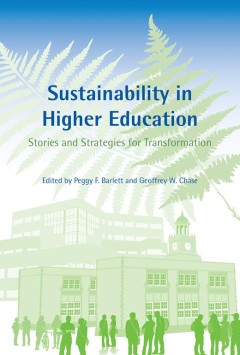
Sustainability in higher education :stories and strategies for transformation
In colleges and universities across the United States, students, faculty, and staff are forging new paths to sustainability. From private liberal arts colleges to major research institutions to community colleges, sustainability concerns are being integrated into curricula, policies, and programs. New divisions, degree programs, and courses of study cross traditional disciplinary boundaries; Su…
- Edition
- -
- ISBN/ISSN
- 9780262316682
- Collation
- 1 online resource.
- Series Title
- -
- Call Number
- -
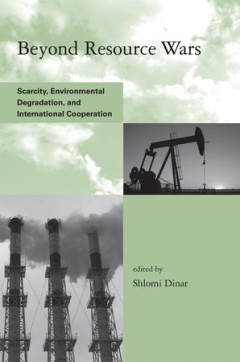
Beyond resource wars: Scarcity, environmental degradation, and international …
Common wisdom holds that the Earth's dwindling natural resources and increasing environmental degradation will inevitably lead to inter-state conflict, and possibly even set off 'resource wars'. This book offers a different perspective on the links between environmental problems and inter-state conflict.OCLC-licensed vendor bibliographic record.
- Edition
- -
- ISBN/ISSN
- 9780262295505
- Collation
- 1 online resource (xii, 335 pages) :illustrations.
- Series Title
- -
- Call Number
- -

Greening the ivory tower :improving the environmental track record of univers…
Universities can teach and demonstrate environmental principles and stewardship by taking action to understand and reduce the environmental impacts of their own activities. Greening the Ivory Tower, a motivational and how-to guide for staff, faculty, and students, offers detailed "greening" strategies for those who may have little experience with institutional change or with the latest environm…
- Edition
- -
- ISBN/ISSN
- 0585201307
- Collation
- 1 online resource (xvii, 337 pages) : illustrations.
- Series Title
- -
- Call Number
- -
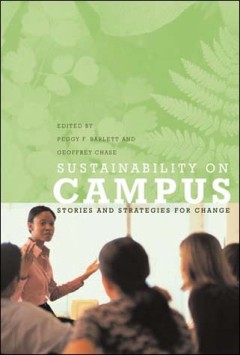
Sustainability on Campus: Stories and Strategies for Change
Stories both practical and inspirational about environmental leadership on campus.These personal narratives of greening college campuses offer inspiration, motivation, and practical advice. Written by faculty, staff, administrators, and a student, from varying perspectives and reflecting divergent experiences, these stories also map the growing strength of a national movement toward environment…
- Edition
- -
- ISBN/ISSN
- 9780262267717
- Collation
- 1 online resource (viii, 327 pages) :illustrations.
- Series Title
- -
- Call Number
- -
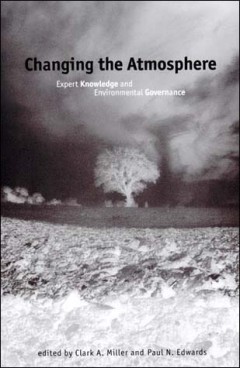
Changing the Atmosphere: Expert Knowledge and Environmental Governance
In recent years, Earth systems science has advanced rapidly, helping to transform climate change and other planetary risks into major political issues. Changing the Atmosphere strengthens our understanding of this important link between expert knowledge and environmental governance. In so doing, it illustrates how the emerging field of science and technology studies can inform our understanding…
- Edition
- -
- ISBN/ISSN
- 9780262279819
- Collation
- 1 online resource (xii, 385 pages) :illustrations.
- Series Title
- -
- Call Number
- -
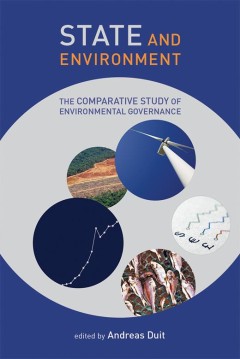
State and environment :the comparative study of environmental governance
This volume of comparative studies documents the continuing relevance of the state in environmental politics and policy. The book also demonstrates the analytical power of the comparative approach to the study of environmental politics and policy, offering cross-national comparisons of environmental governance in both developed and developing countries. Some chapters are based on qualitative st…
- Edition
- -
- ISBN/ISSN
- 9780262323871
- Collation
- 1 online resource :illustrations.
- Series Title
- -
- Call Number
- -
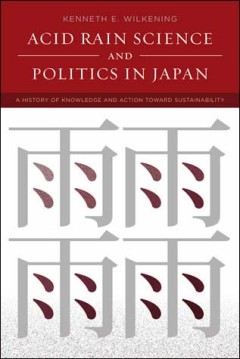
Acid rain science and politics in Japan :a history of knowledge and action to…
Acid Rain Science and Politics in Japan is a pioneering work in environmental and Asian history as well as an in-depth analysis of the influence of science on domestic and international environmental politics. Kenneth Wilkening's study also illuminates the global struggle to create sustainable societies.The Meiji Restoration of 1868 ended Japan's era of isolation- created self-sufficiency and s…
- Edition
- -
- ISBN/ISSN
- 9780262286220
- Collation
- 1 online resource (xii, 322 pages) :illustrations.
- Series Title
- -
- Call Number
- -
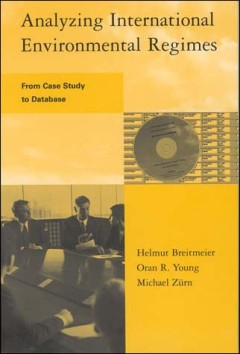
Analyzing international environmental regimes :from case study to database
Regime theory has become an increasingly influential approach to the analysis of international relations, particularly in the areas of international political economy and international environmental politics. The conceptual appeal of the idea of "governance without government"--in which a combination of different organizations and institutions supply governance to address specific problems--ref…
- Edition
- -
- ISBN/ISSN
- 9780262269230
- Collation
- 1 online resource (xiii, 321 pages) :illustrations.
- Series Title
- -
- Call Number
- -
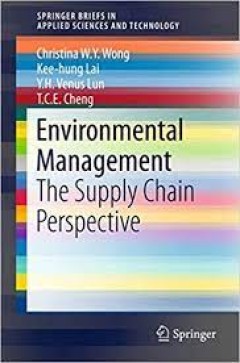
Environmental Management the Supply Chain Perspective
In view of the increasing quest for environmental management in businesses, this book provides a good reference to firms to understand how they may manage their supply chains to improve business and environmental performance. The book consists of six chapters covering such topics as environmental management, environmental management practices with supply chain efforts, collaborative environment…
- Edition
- 1
- ISBN/ISSN
- 978-3-319-23681-0
- Collation
- XI, 140
- Series Title
- -
- Call Number
- -

A comparative history of social responses to climate change, ozone depletion,…
This long-awaited two-volume book examines how the interplay of ideas and actions applied to environmental problems has laid the foundations for global environmental management. It looks at how ideas, interests, and institutions affect management practice; how management capabilities in other areas affect the ability to deal with specific environmental issues; and how learning affects society's…
- Edition
- -
- ISBN/ISSN
- 9780262284011
- Collation
- 1 online resource (xxv, 376 pages) :illustrations.
- Series Title
- -
- Call Number
- -
 Computer Science, Information & General Works
Computer Science, Information & General Works  Philosophy & Psychology
Philosophy & Psychology  Religion
Religion  Social Sciences
Social Sciences  Language
Language  Pure Science
Pure Science  Applied Sciences
Applied Sciences  Art & Recreation
Art & Recreation  Literature
Literature  History & Geography
History & Geography